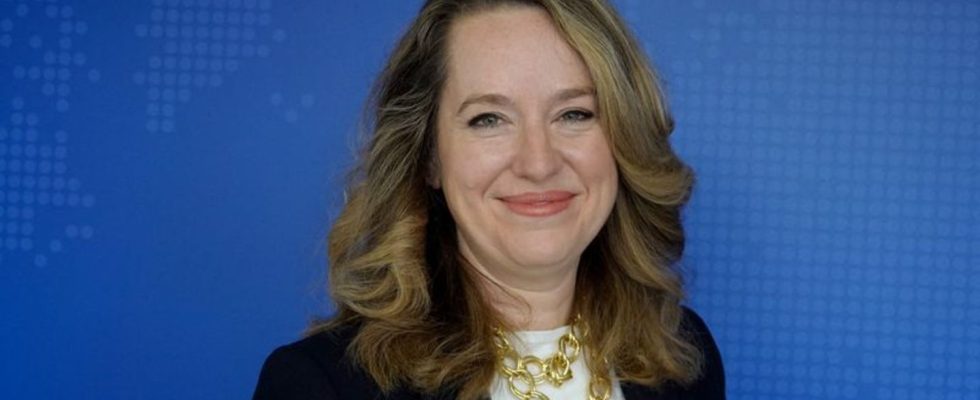labour market
IOM boss: Irregular migrants against labor shortages
The new head of the UN Organization for Migration (IOM), Amy Pope, visits Berlin. photo
© Christiane Oelrich/dpa
Companies everywhere are desperately looking for workers. Before her visit to Berlin, the new head of the UN Organization for Migration (IOM) has a practical proposal that is explosive.
Also arrived in Germany irregularly Migrants and rejected asylum seekers could help eliminate the labor shortage, says the new head of the UN Organization for Migration (IOM), Amy Pope. It is easier for employers to hire people who are already in the country, she told the German Press Agency before her first visit to Berlin.
“We’re hearing from the private sector that it’s easier to employ someone who’s already in the country,” Pope said. “From a practical perspective, there are good reasons to do this.” However, she accepts it if governments do not want to reward migrants who have entered the country irregularly with jobs. This is a political question.
“But there is no clear evidence that irregular migrants who then receive work permits serve as a magnet for others,” said Pope. The IOM would be available in any case: for the repatriation of rejected asylum seekers and expelled migrants, for example, as well as for the search for suitable workers abroad.
Praise for German migration policy
Pope praised German migration policy as exemplary. She mentioned agreements like those with India, in which Germany determines the need for skilled workers and India looks for the necessary candidates. “This is the best practice,” she said. But this is not only necessary for skilled workers. “Engineers, health workers, it’s relatively easy,” Pope said. “But there are also shortages of workers in construction, agriculture and senior care. IOM can help meet the need.” If necessary, the organization offers training and further education in sending countries as well as language courses and courses about the culture in the target country.
“The labor shortage is real, neither the use of artificial intelligence nor a suddenly rising birth rate could change that in the medium term,” said Pope. All studies also show that economies benefit from migration in the long term, that it stimulates innovation and increases wealth. Private companies need to be much louder about the success stories of migrants they have integrated into their workforce, said Pope. She also wants to encourage German companies to do this in Germany. In this way, fears in the population could be countered.
“The workforce of the future”
Pope is also promoting private investment in “the workforce of the future,” as she puts it. “We can help companies invest in training programs in other countries so that the skills that the companies need in two or three years can be learned there.”
In Berlin, Pope will meet, among others, Federal Development Minister Svenja Schulze, the State Minister for Migration, Refugees and Integration, Reem Alabali-Radovan, and the State Secretary in the Interior Ministry, Bernd Krösser. Among other things, she wants to talk about the financing of IOM programs. Germany is one of the most important donor countries to the IOM.

